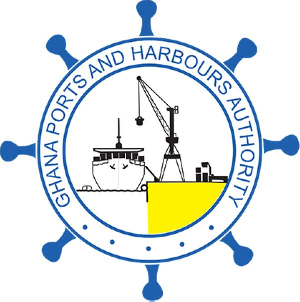Ghana, like the rest of the world, is reeling under the effect of the Covid-19 pandemic that is ravaging the world. The COVID-19 is caused by severe acute respiratory syndrome coronavirus 2 (SARS-CoV-2).
The first two cases of the disease in Ghana were confirmed on 12 March 2020, when two infected people returned from Norway and Turkey. It will be recalled that on 12 January 2020, the World Health Organization (WHO) confirmed that the novel coronavirus was the cause of a respiratory illness that affected a cluster of people in Wuhan City, Hubei Province, China.
This was reported to the WHO on 31 December 2019. In response to the fast spread of the disease, the government imposed a partial lockdown on the two biggest cities: Greater Accra and Greater Kumasi as a way of containing the spread.
This partial lockdown though did not affect Health workers but inconvenienced them greatly. It should, however, be noted that our employer has to a large extent motivated us by granting all health workers six-month tax exemption and has also offered to pay some selected healthcare workers additional 50% of their monthly remuneration for three months.
Recognizing the complementary nature of different skills in the provision of healthcare delivery which are all crucial, as well as the fact that our membership is composed of different classes of health workers, we in the Health Services Workers Union see all healthcare workers as frontline workers.
Prior to the emergence of the devastating and livelihood-wrecking COVID-19 members of the Health Service Workers Union had worked in an underfunded, under-resourced, and un-prioritized healthcare delivery sector. Without gross exaggeration majority of the members are up in arms against their employers for a myriad of unresolved labour disputes.
According to Bangdiwala et al., the increased globalization and interdependence among countries, sustained health worker migration and the complex threats of rapidly spreading infectious diseases coupled with changing lifestyles, makes the health workforce essential.
Building the human resources for the health sector should not only include healthcare professionals like physicians and nurses, but every worker within the healthcare value chain.
A strengthened primary healthcare system will increase coverage and address the basic health needs of societies, especially in low and middle-income countries where healthcare access is a critical challenge. There is a global crisis in the health workforce, expressed in acute shortages and mal-distribution of health workers, geographically and professionally.
This massive global shortage, though imprecise quantitatively, is estimated at more than 4 million workers.
Ghana’s healthcare expenditure has increased over the past two decades. However, increased healthcare expenditure is required to enhance the acquisition of better hospital resources that may improve healthcare.
This disturbing situation of Ghana’s healthcare delivery system is further escalated by the emergence of COVID-19 and its attendant challenges. Since the outbreak of the pandemic, health care systems across the globe have reported substantial personal protective equipment (PPE) shortages, compromising their ability to keep health care professionals safe while treating increasing numbers of patients.
Gloves, face masks, N95 respirators, powered air-purifying respirators, eye protection, and gowns are central to transmission-based precautions. An initial delay in COVID-19 testing increased PPE use, further intensifying demand and Ghana is no exception.
Presently, over 779 health care workers have been infected in Ghana, many of who worked in our government hospitals. The break down is 190 members of the GMA, 410 nurses, 156 members of the Health Services Workers Union, and 23 members of the Pharmacist Association make up the number of infected health personnel.
Union interventions
Representing members of our union, we have consistently monitored interventions by employers and government to ensure strict adherence to ILO protocols in safeguarding the lives of our members with reference to Article 21 of our Collective Agreement with the Ministry of Health which provides that “a health agency or facility shall place emphasis on the health, safety and wellbeing of its employees at all times. To this end, the Agency or Facility shall provide in writing Health and Safety Regulations and these shall be reviewed periodically”.
Similarly, the Labour Act 651 (2003) enjoins the employer to provide for coherent and systematic measures aimed at promoting occupational safety and health of workers.
For instance, Section 9 (a) of the Act states that the employer shall “provide work-appropriate raw materials, machinery, equipment and tools” and (c) “take all practicable steps to ensure that the worker is free from the risk of personal injury or damage to his or her health during and in the course of the worker’s employment or while lawfully on the employer’s premises”.
These provisions set forth the principle that workers must be protected from sickness, disease and injury arising from their employment. Yet for us in the Health Services Workers Union, the reality is very different.
The Union’s response to the pandemic is driven by passion built on the tenets of representation and social justice. The Union has additionally procured ten thousand pieces of hand sanitizers and thirty thousand nose masks and has since distributed to all its members. Additionally, the Union continues to advocate for the Government to supply health workers with PPEs.
To respond to this crisis, policies and actions are needed to address the dynamics of the health labour market and the production and management of the health workforce to strengthen the performance of existing health systems. Schools of public health need to develop the range of capacity and leadership in addition to the traditional training of healthcare managers and researchers.
Jerry Detse Mensah-Pah is the Regional Industrial Relations Officer of the Health Services Workers Union of TUC Ghana and a fellow at Centre for Social Impact Studies (CeSIS).
Opinions of Monday, 13 July 2020
Columnist: Jerry Detse Mensah-Pah















